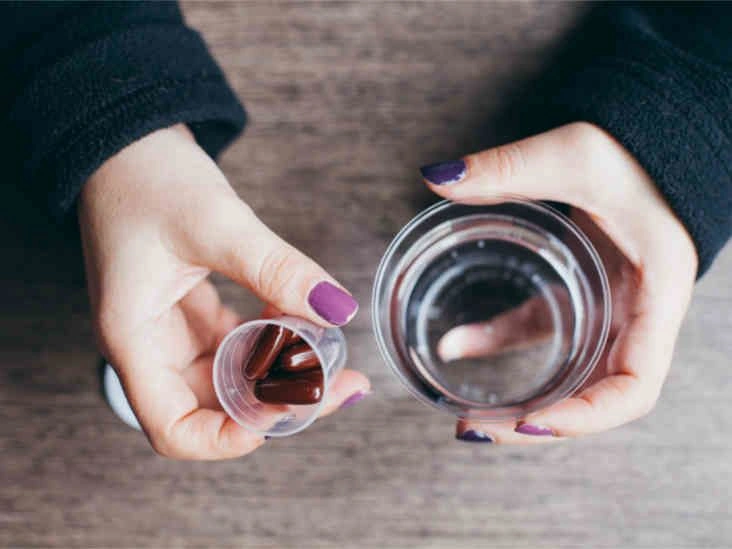The skins and seeds of grapes and many berries are rich in resveratrol, which explains why red wine is a concentrated source of this compound. Research points to promising health advantages, but more studies are needed to determine effective dosing.
If you’ve heard red wine might help lower cholesterol, you’ve likely come across resveratrol — the plant-derived compound that has attracted considerable attention.
Beyond contributing to the health profile of red wine and other foods, resveratrol itself appears to offer several beneficial effects.

Indeed, resveratrol supplements have been associated with a range of positive outcomes, such as supporting brain health and reducing blood pressure.
This article outlines what you should know about resveratrol and summarizes seven of its main possible health benefits.
What Is Resveratrol?
Resveratrol is a plant-derived compound that functions similarly to an antioxidant. Common dietary sources include red wine, grapes, certain berries and peanuts.
The compound is mainly concentrated in the skins and seeds of grapes and berries; these components are retained during the fermentation process for red wine, resulting in its higher resveratrol content.
Much of the existing research on resveratrol, however, has been conducted in laboratory settings or in animals using relatively large doses.
Among the limited human studies, most have examined supplemental resveratrol at amounts greater than what one would normally consume through diet.
Summary:Resveratrol is an antioxidant-like substance found in red wine, berries and peanuts. Much of the human evidence involves supplements that deliver high levels of resveratrol.
1. Resveratrol Supplements May Help Reduce Blood Pressure
Because of its antioxidant actions, resveratrol has been explored as a possible aid for lowering blood pressure.
A 2015 review suggested that higher doses might help reduce the pressure exerted on arteries during heartbeats.
This measurement is known as systolic blood pressure — the upper number in a blood pressure reading.
Systolic pressure often rises with age as arteries lose elasticity. Elevated readings are a risk factor for cardiovascular disease.
Resveratrol may lower blood pressure by boosting production of nitric oxide, which helps blood vessels relax.
Nevertheless, the review’s authors caution that additional research is necessary before definitive dosing recommendations can be made to optimize blood pressure effects.
Summary:Resveratrol supplements might help lower blood pressure by stimulating nitric oxide production.
2. It Positively Affects Blood Lipids
Animal studies have suggested that resveratrol supplementation can favorably alter blood lipids.
In a 2016 study, mice fed a diet higher in protein and polyunsaturated fats and given resveratrol supplements showed reductions in average total cholesterol and body weight, along with rises in “good” HDL cholesterol.
Resveratrol appears to influence cholesterol by diminishing the activity of an enzyme involved in cholesterol synthesis.
As an antioxidant, it may also reduce oxidation of “bad” LDL cholesterol, a process that contributes to plaque buildup in arteries.
In one trial, participants took grape extract enhanced with additional resveratrol. After six months, their LDL fell by 4.5% and oxidized LDL dropped by 20% compared with those taking unenriched grape extract or placebo.
Summary:Resveratrol supplements may improve blood lipid profiles in animals and may also reduce LDL oxidation.
3. It Extends Lifespan in Some Animals
Researchers have focused on resveratrol’s ability to extend lifespan in a variety of organisms.
Evidence indicates resveratrol can activate certain genes that help protect against age-related diseases.
It seems to act in a manner similar to calorie restriction, which can extend lifespan by altering gene expression.
Whether resveratrol would have comparable effects in humans remains uncertain.
A review found resveratrol extended lifespan in about 60% of the organisms studied, with the strongest effects seen in species more distantly related to humans, such as worms and fish.
Summary:Resveratrol has lengthened lifespan in animal studies, but it’s unclear if these effects translate to humans.
4. It May Protect Brain Function
Multiple studies suggest moderate red wine consumption might slow age-related cognitive decline.
Resveratrol’s antioxidant and anti-inflammatory properties likely play a role.
It appears to interfere with beta-amyloid fragments, which are key to the plaque formation associated with Alzheimer’s disease.
The compound may also trigger cellular processes that defend brain cells from harm.
Although the research is promising, questions remain about the bioavailability of supplemental resveratrol in humans, which limits its immediate use as a brain-protective therapy.
Summary:Resveratrol, a potent antioxidant and anti-inflammatory agent, shows potential for protecting brain cells from damage.
5. It May Improve Insulin Sensitivity
Resveratrol has demonstrated several diabetes-related benefits in animal research.
These include improved insulin sensitivity and prevention of diabetes complications.
One proposed mechanism is that resveratrol inhibits an enzyme responsible for converting glucose into sorbitol, a sugar alcohol.
Excess sorbitol accumulation in people with diabetes can cause oxidative stress that damages cells (, 31).
Additional potential advantages for people with diabetes include:
- Protection from oxidative stress: Its antioxidant activity may help guard against oxidative damage that underlies many diabetes complications.
- Reduced inflammation: Resveratrol may lower inflammation, a contributor to chronic conditions including diabetes.
- Activation of AMPK: This protein aids glucose metabolism; its activation helps maintain lower blood sugar levels.
Resveratrol may even work better in diabetic subjects than in non-diabetic ones. In one animal study, red wine and resveratrol acted as stronger antioxidants in diabetic rats than in healthy ones.
Researchers suggest resveratrol could become part of future diabetes therapies, but more human studies are needed.
Summary:Resveratrol improved insulin sensitivity and reduced diabetes complications in animal studies; it may hold therapeutic potential for people with diabetes in the future.
6. It May Reduce Joint Pain
Arthritis, which causes joint pain and reduced mobility, is a common condition.
Plant-based agents are under investigation for their ability to prevent and treat joint pain. Resveratrol supplements may protect cartilage from degeneration.
Cartilage deterioration leads to joint pain and is a major symptom of arthritis.
In one study, researchers injected resveratrol into the knees of rabbits with arthritis and observed less cartilage damage.
Other laboratory and animal work indicates the compound could reduce inflammation and help prevent joint destruction.
Summary:Resveratrol may ease joint pain by hindering cartilage breakdown.
7. Resveratrol May Inhibit Cancer Cells
Resveratrol has been explored—mainly in lab studies—for its potential to prevent and treat cancer, with mixed findings.
In test-tube and animal experiments, it has shown activity against various cancer cell types, including gastric, colon, skin, breast and prostate cancers.
Possible mechanisms by which resveratrol may fight cancer include:
- Inhibiting cancer cell growth: It may block cancer cells from multiplying and spreading.
- Altering gene expression: Resveratrol can modify gene activity in cancer cells to hinder their growth.
- Hormonal effects: The compound may affect hormone-related pathways, potentially slowing hormone-dependent cancers.
Because most of this evidence comes from cell and animal models, much more research is required to determine whether resveratrol could be effective in human cancer treatment.
Summary:Resveratrol has shown promising anti-cancer activity in laboratory and animal studies.
Risks and Concerns About Resveratrol Supplements
No major safety issues have emerged from studies using resveratrol supplements; most healthy individuals tolerate them well.
However, clear, evidence-based guidelines for how much resveratrol a person should take to achieve health benefits are still lacking.
There are also cautions about potential interactions with medications.
High doses of resveratrol have been shown to inhibit blood clotting in laboratory tests, so it could increase bleeding or bruising when combined with anticoagulants such as heparin or warfarin, and perhaps with some pain relievers.
Resveratrol also inhibits enzymes that metabolize certain drugs, potentially causing some medications to accumulate to unsafe levels. Affected drug classes may include certain blood pressure medicines, anxiety treatments and immunosuppressants.
If you take medications, consult your healthcare provider before using resveratrol.
Finally, debate continues about how much resveratrol the body can actually absorb and use from supplements and dietary sources.
Researchers are working on methods to improve resveratrol’s bioavailability.
Summary:Resveratrol supplements are likely safe for most people, but they can interact with certain medications and there is no firm guidance yet on optimal dosing.
The Bottom Line
Resveratrol is a potent antioxidant with considerable potential.
It has shown promise for a variety of health issues, including cardiovascular disease and arthritis, but clear dosing recommendations are still unavailable.
Further reading on related oils and compounds that interact with cardiovascular and metabolic health can be helpful; for example, research on grape seed oil and resveratrol supplements explores complementary topics discussed above.


















Leave a Reply
You must be logged in to post a comment.